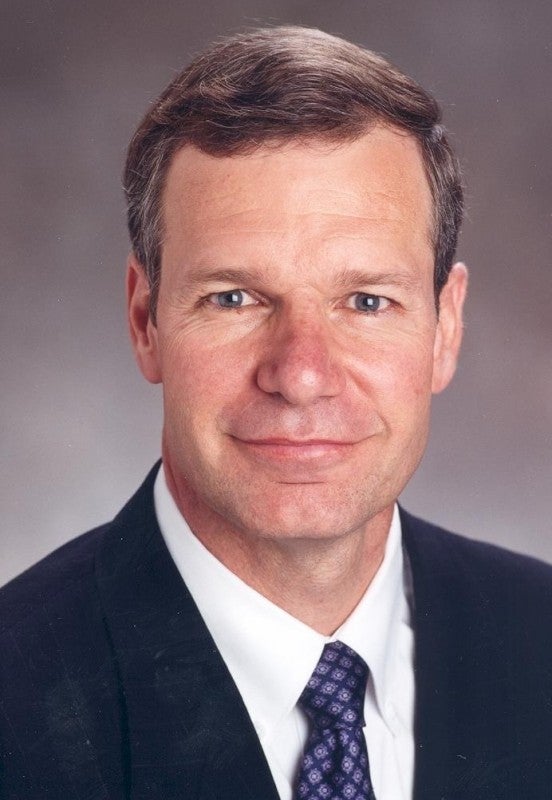
Academic Head
G. P. “Bud” Peterson received his B.S. in Mechanical Engineering in 1975, a B.S. in Mathematics in 1977, and an M.S. in Engineering in 1980 from Kansas State University. Upon completing his PhD at Texas A&M in 1985, Peterson took a faculty position in the Mechanical Engineering Department at Texas A&M University where he conducted research and taught courses in thermodynamics and heat transfer. In 1990 he was promoted to Professor of Mechanical Engineering and named Halliburton Professor and then in 1991 was named the College of Engineering’s Tenneco Professor. In 1993, Professor Peterson was invited to serve as the Program Director for the Thermal Transport and Thermal Processing Division of the National Science Foundation where he received the 1994 NSF Award for Outstanding Management. From 1993 to 1996, he served as Head of the Department of Mechanical Engineering at Texas A&M University and in 1996 was appointed to the position of Associate Vice Chancellor for the Texas A&M University System and Executive Associate Dean of the College of Engineering. In 2000, Peterson was invited to be Provost for Rensselaer, a position he held until 2006.
Peterson has served on numerous committees and review panels for NSF, NASA, DOE, NAE and other federal agencies and industrial entities and has helped to shape the national research agenda in the field of heat transfer. He received the 1990 AIAA Best Paper award in Thermophysics for his work in modeling and testing of very small “micro” heat pipes and has twice received awards for outstanding presentations of technical papers. He has been an Associate Editor for the ASME Journal of Energy Resources Technology, Editor for the Heat Transfer Division Newsletter, Editor for the ASME publication Heat Transfer Recent Contents, Editor for North America for the Journal of Experimental Thermal and Fluid Sciences, and is currently Associate Editor for the International Journal of Heat and Fluid Flow, the AIAA Journal of Thermophysics and Heat Transfer, the ASME Journal of Heat Transfer, and Microscale Thermophysical Engineering. In addition, he has served as session organizer or chair for more than 60 ASME and AIAA technical sessions, and is actively involved in numerous other ASME and AIAA professional society activities.
